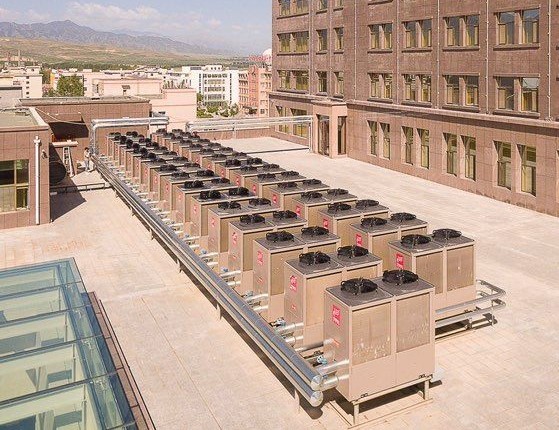
It has been recognised for many years that the built environment is responsible for generating a significant proportion of the carbon dioxide generated in the United Kingdom (UK). Recent estimates have indicated that up to 33% of all UK carbon dioxide emissions are from buildings and it is therefore imperative that this is mitigated if the United Kingdom is to achieve its zero carbon target by 2050.
Whilst satisfying this target will be challenging, MEP engineers have an exciting and pivotal role in working alongside clients and construction teams to deliver this. As registered Low Carbon Consultants Hill Cannon have been providing innovative and future proof design solutions on many projects to provide our clients with low carbon buildings and high asset values. Linked to this, we constantly monitor changes, or potential changes in relevant legislation to ensure that the best advice relating to the design of buildings is provided to our clients. Over time this has frequently required the incorporation of innovative technologies and approaches to not only satisfy Building Regulations but also to safeguard the asset value of buildings for our clients.
A good example of this has been when we have implemented a change in the normal approach to the provision of heating and hot water supply in large residential blocks. Until recently such projects have often been serviced by gas boilers and/or gas fired CHP systems which have worked well and could still be installed without breaching Building Regulations. However, with a good understanding of the proposed changes that will be incorporated in the new Building Regulations Part L, expected to be issued in 2021, it is expected that such installations, which burn fossil fuels, will now result in their associated buildings achieving relatively low Energy Performance Certificate (EPC) ratings, with the asset value being affected accordingly. As such, to counter this, Hill Cannon have developed inntrerrovative “all-electric” design solutions that take advantage of the greener electricity delivered by the national grid. With the phasing out of coal and gas fired power stations, and utilisation of electricity generated from wind and nuclear energy, electricity now provides a clean source of energy. The combination of this, and the implementation of air, ground, or water source heat pumps, which have efficiencies in the region of 300-400%, will have a significant influence on achieving the 2050 net zero target, and will provide buildings with much higher EPC and asset ratings.
Hill Cannon have employed large scale innovative heat pump technology on a number of projects, notably in the residential sector. The combination of heating by electrically powered heater panels, and hot water supply form large scale air source pumps installations has provided cost effective design solutions that comfortably satisfy Building Regulations and help to achieve high Energy Performance Ratings.
